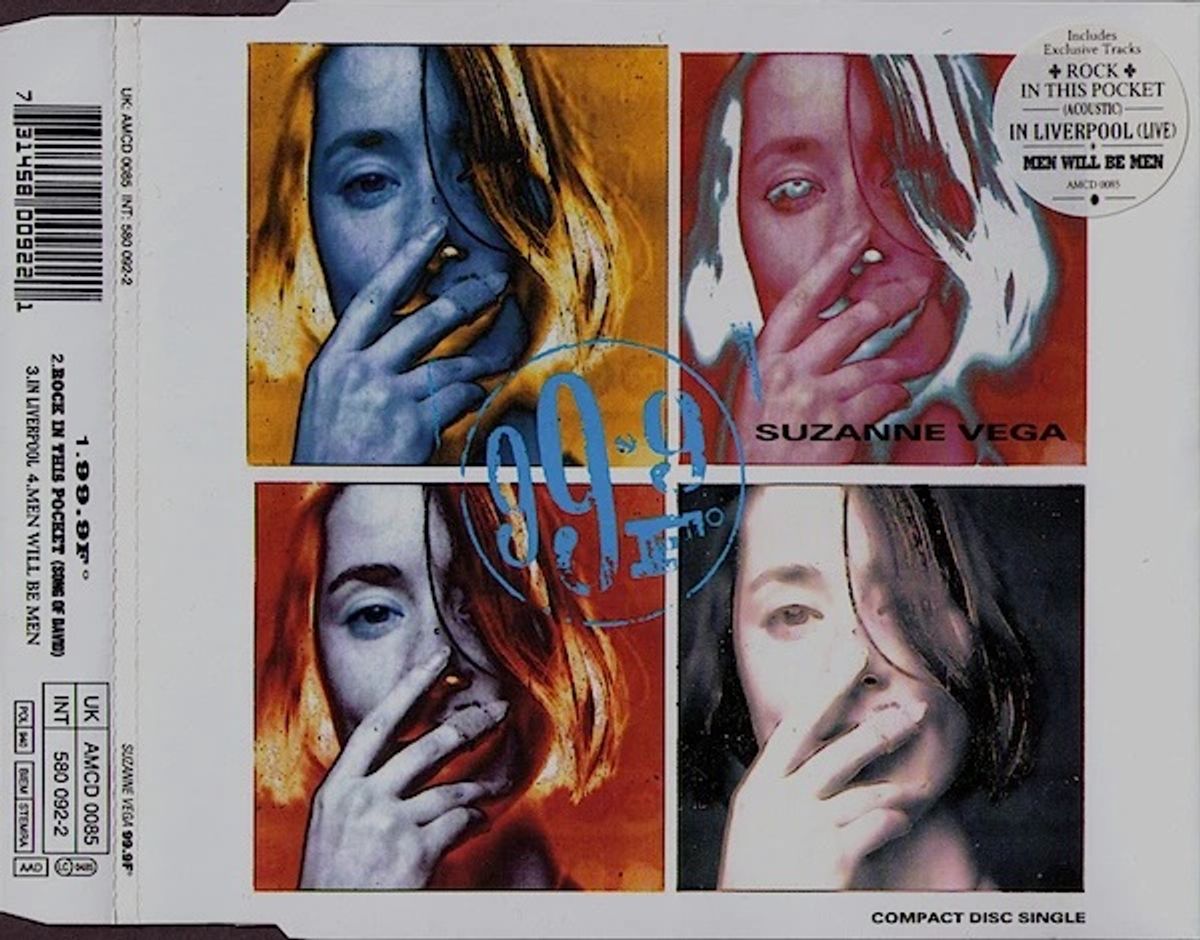#MitchellFroom - Suzanne Vega - 99.9 F° (1992)

De naam Mitchell Froom zal bij sommigen een bel doen rinkelen en bij veel anderen een oprecht “Que?!”. De kans dat u een welluidende productie van deze Amerikaanse producer uit California in de platenkast hebt staan, is nochtans relatief groot. We zoomen een weekje in op deze klepper met een fors stel oren aan zijn hoofd.
Na drie succesvolle lp’s verwachtte iedereen er nog minstens drie die haar als de vrouwelijke Leonard Cohen-songstress in de wereld zouden zetten, maar Suzanne Vega zette het kompas een heel eind weg van de eigentijdse folk met gitaar en ging aan het werk met synthesizers en drumcomputers. Geruchten deden de ronde dat ze een technoplaat aan het prepareren was, maar niets was minder waar.
Songs waren nog steeds de kern, maar met de hulp van producer Mitchell Froom werd iedere song tot de kern gestript en in een geluidenbad gestopt met een ferme lp '99.9 F°' tot gevolg. En de vlam sloeg wel op meer manieren in de pan. We laten Vega zelf aan het woord: “We fell in love while we were working on the album. I started to have really strange dreams and a weird feeling I couldn't put a name to. I knew I liked him, but didn't think about being attracted to him. I felt myself being drawn into something against my will. It was like he cast a spell, and I resented it. I didn't want to be involved with a keyboard- playing producer who was married with a child. I felt it would wreck everything. It started to dawn on me a couple of weeks into the recording process, when we went out for a drink; we got into the back seat of a car and he took my hand. Most guys if they take your hand are looking to see your reaction, but he was just holding it really tight and scowling out of the window.”
Twee jaar later zouden ze officieel in de echt treden en dochter Ruby in de wereld zetten, maar in 1998 was het sprookje ook weer over. Wellicht één van de sterkere plaatexploten, dit ‘99.9 F°': "He told me that I had a small voice and he wanted to take it out of all the competition it was having on my previous albums, especially the drums. He also felt that my previous albums had sounded too pristine and too clean. He felt that my music should sound small, dry and intimate yet at the same time have more edge to it. One way of doing that would be to bring a lot more distortion into the music. What he said made good sense to me."
En dan de producer zelf: "The challenge was how to reconcile the acoustic guitar with tough, unusual arrangments, particularly if it's played in a fingerpicking style, which can soften the music too much. So you have to be able to counter that with some very strong and definite elements. That's why it worked out that the bass could drive the music so well, because it was the furthest away from the range of her acoustic guitar. It provided a counterpoint. That's also why the electric guitar playing is much spottier, because it's in the same frequency range as the vocals and acoustic guitar and too much of it would have drowned them out."
